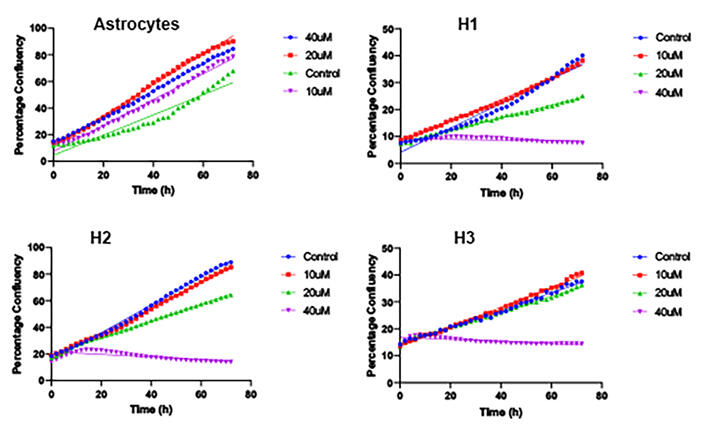Repurposing antipsychotics for treatment of brain metastasis
Drug repurposing involves the investigation of existing drugs for new therapeutic purposes. The drugs have already been approved for use in humans, thus new treatments for cancers can be offered to patients more quickly.
Hovedinnhold
It is well known that cancer patients with brain metastasis (BM) have a poor prognosis and current treatments are not effective. Drugs specifically targeting BM are not available, and the patients have been excluded from clinical trials for many years.
Delivery of novel treatments such as targeted therapies and immunotherapies do not easily cross the blood-brain barrier (BBB), which is intact during early phases of BM development. In this respect, drugs which can penetrate an unimpaired BBB is warranted and we have previously shown that antipsychotics are able to cross an intact BBB and inhibit MBM development in animal models (ref).
We have at present convincing preliminary data, showing that the antipsychotic medications clozapine and thioridazine effectively inhibit melanoma brain metastasis progression in vitro (see Fig). This project encompass groups with strong expertise in medicinal chemistry and drug development and our group that has developed state-of-the art in vivo BM model systems. We aim to synthesize and test new analogues of clozapine and thioridazine, perform extensive screening of the analogues using our in vivo model systems of human BM, as well as cell lines and brain organoids in vitro. The project will provide potential new therapeutic options for BM patients with a poor prognosis.
